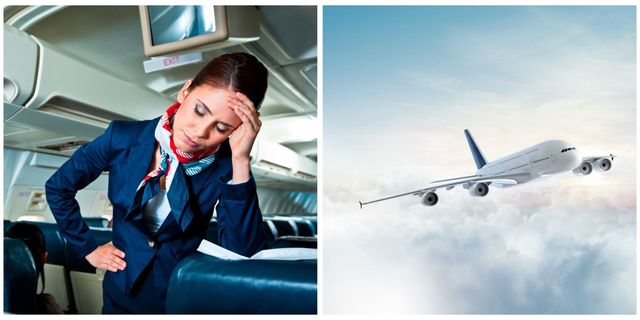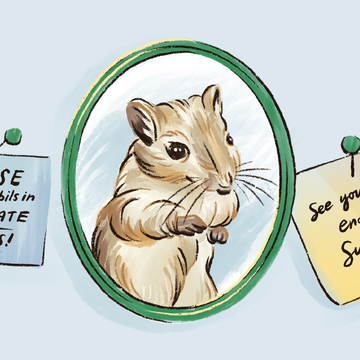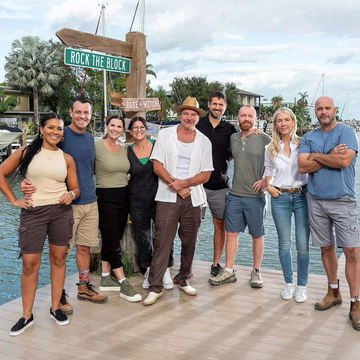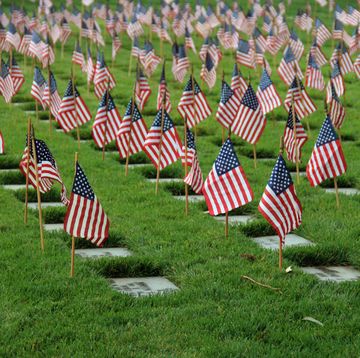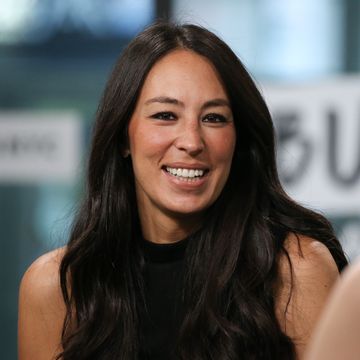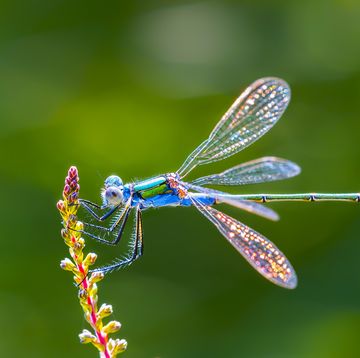Over at Reddit, someone asked airline employees to share secrets that we might not know about the magical world of air travel. And boy, are there some doozies. Without further ado, we present you some of the most fascinating secrets of air travel:
1. Unsurprisingly, dogs aren't into flying. "If you checked your dog there's about a 30% chance it's terrified before it even gets on the plane, who knows how scared it gets during the actual flight. Bag room agents will usually try to comfort a scared animal, but all we can really do is talk to it, so if you write your pet's name on their carrier it usually helps a lot." However, cats are more relaxed: "I've never seen a cat who was scared in the bag room, cats don't usually care."
2. Airlines operate differently in the air. An air traffic controller spills some secrets about how different airlines work once they get above the clouds: "One thing most people are surprised to hear is that it's absolutely true that certain airlines fly their planes differently. Southwest for example tends to climb like insanely fast, and then request direct routing/shortcuts from us, since they're above most conflicting traffic. It's one of their signature tricks, and it usually works. This can cut significant time off the flight. American Airlines on the other hand tends to be gentle for efficiency and passenger comfort, and they always report chop and turbulence when other guys say it's smooth. Things like this are actually so profound, it can affect how we control traffic. You can usually count on guys like Southwest to climb and descend fast for you, for example."
3. Like In-n-Out, airplane seats have a secret menu. "You know how all the other armrests can be raised except for the one next to the aisle? Turns out that one can be raised as well via a small button in a divot on the underside of the armrest. Useful if you want to spread out a bit more, though some flight attendants may tell you to put it back in place."
4. This one wins the award for the creepiest secret: "There is a small latch hidden inside the lavatory sign on the bathroom door, which will open the door when pulled, even when it's locked."
5. Here's why your baggage gets lost so often. Someone who says they worked in a bag room says this is the following reasons:
"1. TSA pulled your bag for extra screening and took way too long doing it and got it to the airline like 10 minutes after your flight left.
2. Somebody in the bag room messed up (usually a new hire, my company, at least, cycles through employees like a movie theater) and put it in the wrong cart for a flight that leaves 2 hours after yours and it didn't get caught until the ramp crew started loading that flight.
3. Your bag got caught somewhere on the bag belt or it sent it to the wrong place.
4. Curbside was supposed to bring your bag to the bag room because it was oversize or the computer that sorts the bags couldn't scan your bag tag (in either case it gets sent to a special carousel) but they were busy/forgot to check and didn't get to it until it was too late.
5. You checked your bag really close to departure time and it just didn't make it through the belt system in time (takes about 15 mins if TSA doesn't get involved at my station) so we didn't get it until after departure.
6. You checked your bag really early (like 5+ hours) and since there wasn't room for it's flight in the bag room yet it went in a corner so people wouldn't keep tripping over it and was forgotten about.
7. It fell off the bag cart on the way to the plane and nobody noticed (highly unlikely).
... and that's how your bags get lost in 95% or cases."
6. You fly for free and/or super cheap—and so does your spouse and children (well, with one hitch). "Employees and their families get "ID tickets" (ID is for "industry discount"), which means they only pay taxes and fees and nothing for the actual ticket. The airlines basically lets them fly for free. And not just with their own airline, but with every airline in any alliance. The tickets are stand-by tickets, so you're not guaranteed to get on board, but you get a seat more often than not. The family members can travel on these tickets without the employee. My dad worked for an airline in Star Alliance, so I used to get free tickets with airlines in One World and SkyTeam as well as Star Alliance. I usually traveled in business class, all around the world. A return trip between Europe and Japan was something like 200 USD in business class, and maybe 50 USD in economy. I don't get any perks anymore, as it was only valid until I turned 25."
7. Pilot and co-pilot are served two different meals in case one is poisoned. Maybe. One Redditor writes, "2 pilots are served different meals and cannot share, this is done in case of food poisoning," but this New York Times article says it's not FAA regulation, but rather each airline decides their own rules.
8. Flight attendant secrets are the best secrets. "Flight attendants have a list of who is who and what seat they are in. As well as what level of frequent flyer they happen to be. Or if they are employees or family and friends tickets. This is why you will see them being rude to someone or bending over backwards for jerks.
Flights are routinely overbooked because there's a estimate per route of what percentage of people tend to miss the flight. So if you don't have a seat assignment, you might not get on. Which is why they ask for volunteers. If you are a frequent flyer and know the busy times and flights you could volunteer all day from every flight going to a hub and make $1,000 in credit.
Invest in quality luggage. You are the only one that handles your bag with care. Your bag is going to take a beating in the system."
9. Being nice will get you everywhere. "Flight attendant here. The nicer you are to us, the more we can do for you. Ran out of beef? Ask politely and we will get you a fillet mignon from first class.
Your neighbor is noisy? Tell us nicely and we might be able to get you a better seat.
You're 35k feet in the air but you'd like to know the results of the game? Be nice and we can send a message to ground and ask.
More often than not when passengers are aggressive and nasty we'd render minimal service and not extend more help than need be."
10. This is plain (har) sad. "Sometimes your pilot can be on food stamps because they only make 19k/yr." This is the reason Sully Sullenberger — the hero pilot who safely landed a flight in the Hudson — has worked tirelessly to raise awareness about the poor salaries of pilots.
11. Exactly how much oxygen is in those masks? '[I]f the cabin were to depressurize, there is only 12min of oxygen available from the masks, this needs to last for the descent from the depressurization (usually flying at just under 40k feet altitude) to a 'safe' altitude of 10k feet, this time includes a hold at 14k feet of around 7 and a half minutes.
Also, the reason why they tell you to put your oxygen masks first and then assist children is because at an altitude of 40k feet you will only have 12-20 seconds of breathing normal air before you become unconscious. There is no problem if a child becomes unconscious for a few seconds as they will regain consciousness when the oxygen mask is put on." The more you know!
12. Most importantly: when do you get the best deals on flights? "On average, the cheapest time to BUY a ticket is Tuesday afternoon. The cheapest time to FLY is Tuesday, Wednesday, or Saturday. This applies to US flights in my experience."
